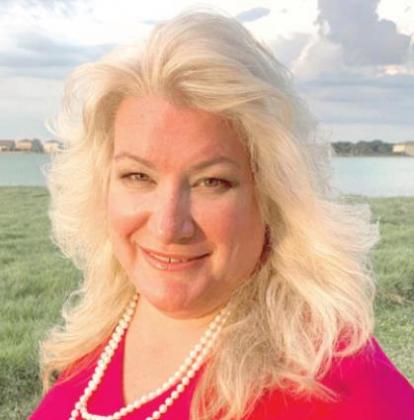The month of May is designated as both Older Americans Month and Mental Health Awareness Month.
With these two designations important to the many seniors across our country as well as community residents who depend on the Osceola Council on Aging (OCOA), we felt it important to observe both designations involving agerelated needs and wellness initiatives for the Osceola community.
So, what is Older Americans Month? The designation was created after a meeting in April 1963 between President John F. Kennedy and members of the National Council of Senior Citizens. The council pushed to create an initiative to acknowledge the many contributions senior Americans have made to our country. That recognition was eventually titled Older Americans Month (OAM). Accordingly, OAM and the Administration for Community Living, which leads the national observance, titled this year’s theme, “Communities of Strength.” Thankfully, our senior Americans make up many “communities of strength” across our nation by having built resilience, strength, success, failure, and joy through much difficulty, throughout their lives.
Likewise, May is also observed as Mental Health Awareness Month. The national program focuses on increasing awareness of mental health through education and discussion. According to the National Alliance of Mental Health (NAMI), the theme for 2021 is “You Are Not Alone,” as one in five American adults experience some form of mental illness at any given time. One in every 20 adults are living with serious mental health conditions such as schizophrenia, bipolar disorder, and/or long-term recurring depression. This year, as important as in any year, the COVID-19 pandemic has had an impact on mental health issues; thus, it is critical we work to reduce the stigma surrounding this important topic.
With our senior Americans and mental health education initiatives both substantial topics, we wanted to couple to discuss their importance, while also taking the discussion further to include Adult Protective Services (APS). As our senior citizens often need supplemental support and protection, as do those with mental health issues, this population can often be exploited and abused. We want to cover what APS is, the importance of the social program, and what friends, family members and caregivers can look for if they suspect abuse or neglect.
APS are services provided to abused, neglected, and/or exploited seniors and adults with significant disabilities. APS is typically administered by local or state health, aging, or regulatory departments, which includes a multidisciplinary approach to support seniors and younger adults with disabilities, who are high risk for abuse. Services can range from investigation of mistreatment to health services and legal interventions, up to and including the appointment of surrogate decisionmakers such as legal guardians.
According to the National Council on Aging, elder abuse is considered a silent problem, which can rob seniors of dignity, security, and – in some cases – cost them their lives. Up to 5 million older Americans are abused every year, and the annual loss by victims of financial abuse is estimated to be at least $36.5 billion. Perpetrators can include children, family and spouses as well as nursing homes and assisted living staff. Approximately one in ten, age 60-plus seniors have experienced some form of elder abuse. Sadly, a recent study estimated only one in 24 cases were reported to authorities.
So, what does the OCOA do to protect our seniors? To begin, the OCOA provides extensive, preventative education on elder abuse through programs provided within our social services organization. Each department trains employees to engage with clients in conversations and outreach regarding abuse, neglect, and/or exploitation.
Additionally, the OCOA has a great working relationship with local law enforcement agencies throughout Osceola County. If unusual activity is suspected, each department has a designated person to call the APS hotline. If an OCOA case manager suspects a senior may be in harm, they will request law enforcement do a wellness check at the senior’s home. If the case warrants an immediate action, 911 is called to assist. Additionally, we have support groups for caregivers who specialize in providing training, peer support, and resources to families. OCOA support groups also help decrease the potential of abuse and maltreatment by caregivers.
Similarly, our Savvy Caregiver Training Program is a unique approach for family caregivers to develop skills necessary to care for a client with Alzheimer’s or dementia. The program offers evidenced-based solutions on the many clinical disciplines of caregiving. A caregiver’s understanding of the patient’s brain disorders lowers the risk of abuse or maltreatment. Through education, a caregiver is better able to understand the person’s cognition is changing, so the behavior is not intentional. This realization can lower the tension of the caregiver to help decrease potential neglect and/or abuse. Further, since elder abuse can become expansive in terms of physical, sexual, emotional neglect, deprivation, and financial exploitation, the OCOA has annual training provided for staff through the Department of Elder Affairs.
As you can see, it takes a village to protect, and keep our seniors safe, healthy and free from harm. Unfortunately, the OCOA and law enforcement cannot always do it alone. If you suspect there is any type of abuse happening to an older or disabled adult, call the Florida Department of Children and families at 1-800-962-2873. An investigation will be done and if applicable, an adult protective investigator will become involved.



